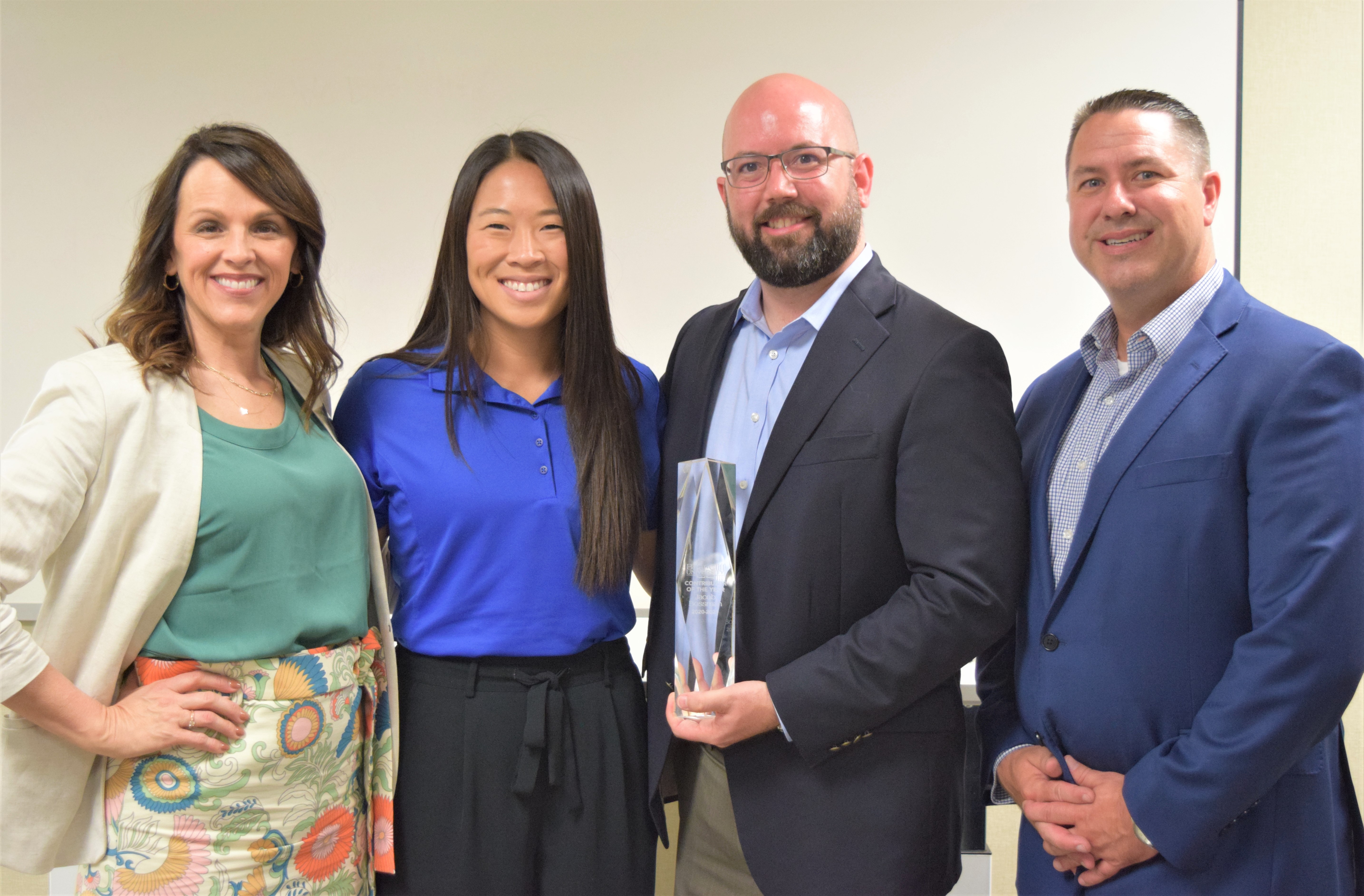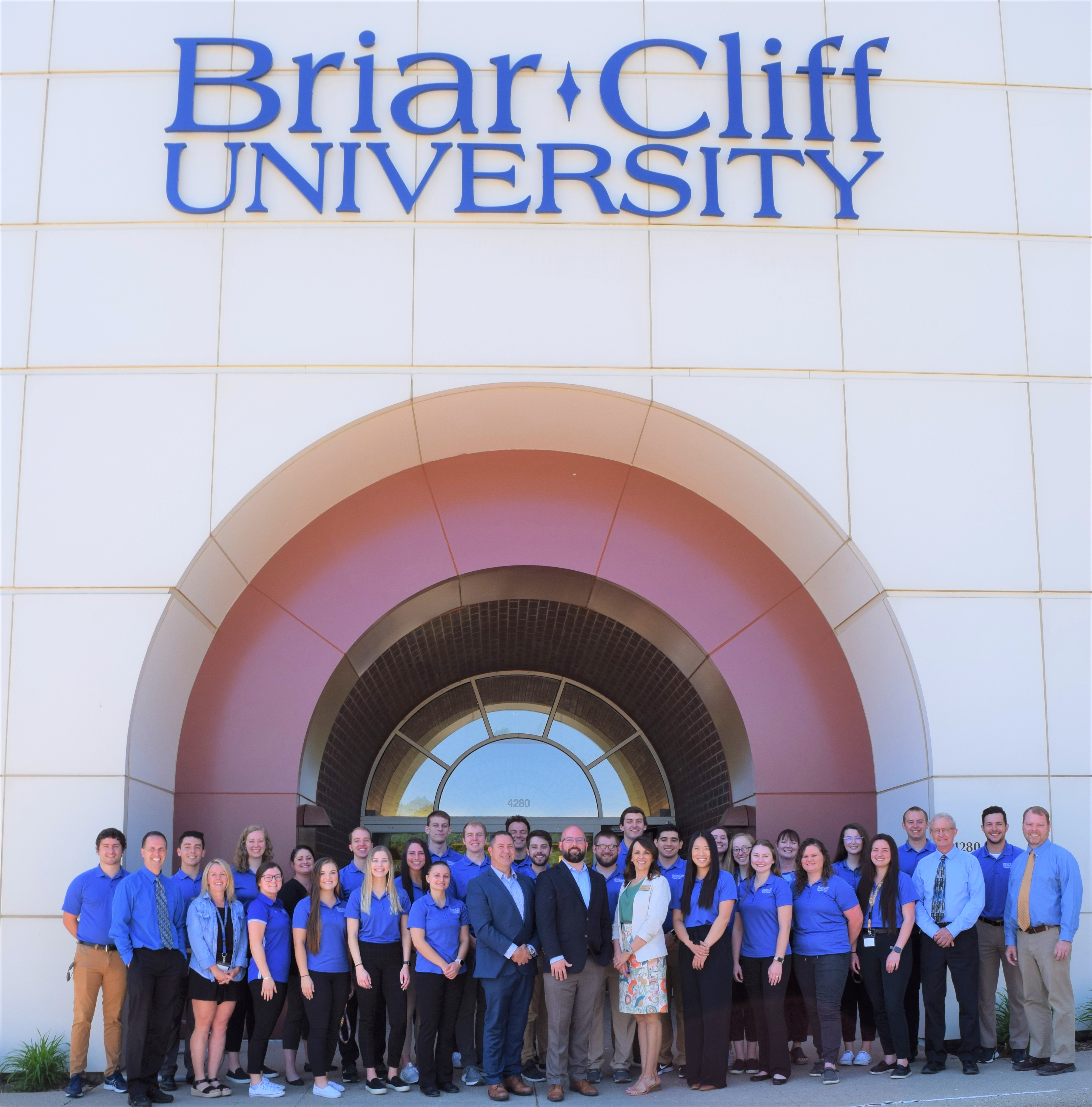
Briar Cliff University Recognizes State Representative Jacob Bossman as Contributor of the Year
 Briar Cliff University’s Doctor of Physical Therapy Program recognizes one individual, outside of the Program’s core faculty and staff, who has had a profound impact on the program. Today, the university recognized State Representative of District 6, Jacob Bossman, as Contributor of the Year.
Briar Cliff University’s Doctor of Physical Therapy Program recognizes one individual, outside of the Program’s core faculty and staff, who has had a profound impact on the program. Today, the university recognized State Representative of District 6, Jacob Bossman, as Contributor of the Year.
Bossman’s recognition stems from the DPT Class of 2021, when students and faculty attended APTA Iowa’s Legislative Day in February 2019. The day included learning about bills and lobbying, on behalf of the physical therapy profession and those served. This day also included a thorough discussion between Briar Cliff faculty Dr. Brian Wienk, then students Ryan Schneider and Kevin Schnitz, and Representative Jacob Bossman from House District 6, where Briar Cliff’s Mayfair campus is located today.
“If individuals do not believe that the grassroot advocacy by one (or in this case three) individuals can make a difference, they are mistaken,” shares Patrick S. Cross, PT, DPT, Program Director and Professor of DPT at Briar Cliff University. “One of the issues that was brought forth to Representative Bossman was related to an old act that allowed graduates of certain health care programs from Des Moines University to be eligible to apply for funding through a Health Professional Recruitment Program if they worked in a medically underserved community that was located in a federally designated Health Professional Shortage Area or a Governor’s Designated Rural Health Clinic County.”
Cross shared the conversation included how part of the mission of Briar Cliff’s DPT Program includes “preparing the next generation of PTs to practice autonomously and respond to patient and societal needs of the region, including the underserved,” and how over 30% of our graduates have taken their first job in a rural, medically underserved area, yet were not eligible for this benefit.
“This is a great example of grass-roots advocacy at its finest. When you came and brought this as an inequity issue, it just made sense as we looked into it more,” said Representative Bossman at the DPT award ceremony. “Even though Sioux City is not an underserved area, this is a type of program that really serves the entire state. The urban areas are producing the students, then there’s the rural areas who really need the providers to provide the health care. It is addressing rural health care, but also creating opportunities for students.”
This conversation inspired Representative Bossman to evaluate the act and improve those eligible within the state of Iowa. HF 196 not only makes graduates from more institutions eligible to apply for up to $100,000 of loan repayment for 4 years of service in underserved areas, but also expands the definition of eligible health care professionals to athletic trainers and occupational therapists.
“The loan repayment will significantly impact student debt. But more importantly, HF 196, will increase access to physical therapy services to those in need who reside in the underserved areas of Iowa,” says Tia Hagy, Briar Cliff DPT 3rd year student. “Briar Cliff University’s Doctor of Physical Therapy Department’s Franciscan centered mission focuses on serving those who are underserved. We are grateful the bill and law reflect the same mission.”
The expansion of the bill will further help thousands of Iowans by increasing their access to health care professionals who can reduce patient dependence on pain medications and prevent unnecessary costly medical imaging and surgeries.
“Because of your efforts, Representative Bossman, and the efforts of Briar Cliff’s DPT faculty, and the DPT class of 2021, this is absolutely something that will impact our current and future students very positively moving forward,” shared Dr. Rachelle Karstens, Briar Cliff University President. “We know and recognize the financial burden for students, and we are grateful for the signing of this bill to not only help with this need, but also help better serve patients in Iowa.”